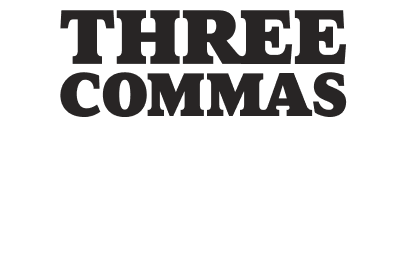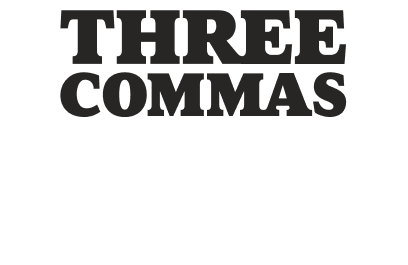The 2nd Tribeca TV Festival celebrates those television pioneers who have broken boundaries in episodic storytelling; when it comes to nonfiction, there is no better example of this achievement and spirit than Shark Tank.
The show marks its 10th season and 200th episode this year. In the course of a decade, it has become iconic, due to the irresistible concept of hopeful entrepreneurs pitching their business ideas to super-capable, savvy investors.
The story is already in place, and it’s rags-to-riches: each Shark has forged an empire out of nothing but their own smarts, instinct and intuition. Now, at the top of their world and with their bullshit detectors switched on, they help aspiring, deserving entrepreneurs realize their own American Dream.
The stories that usually get the blood racing and the heads turning -- and sometimes the tears flowing -- are tales of adversity. The contestants who are determined to make it against all odds present television at its best, even in the short-attention-span digital age. America never tires of watching the tough, hardened, world-weary Sharks suddenly soften and deepen; their hearts grow three times their original size due to a gripping underdog story. It just never gets old.
The series debuted in a hopeless place: the ass-bottom end of the 2009 financial crisis. This humble beginning feels right, entrepreneurial. The ratings were soft at first, and the show bounced around the programming schedule like an unloved orphan. In the second season, Mark came on board and the national economy began to improve (we’re not sure if these two events are related, but they could be). From there, the audience began to build to overflow, and the ratings went supernova.

The one-hour Tribeca event was held before an enthusiastic live audience on Sunday, September 23, 2018 at Spring Studios in Manhattan. It celebrated the many ways in which Shark Tank gives countless new definitions to the possibilities, drama, and rewards of entrepreneurship. Like anything else in business, the proof is in the bottom line: in its decade on the air, Shark Tank won four Emmys, critical praise, and millions of faithful, inspired viewers.
Almost all the Sharks were in attendance (except for Robert Herjavec, who couldn’t make it due to a scheduling conflict): Mark Cuban, Barbara Corcoran, Daymond John, Kevin O’Leary, and Lori Greiner.
Executive producers Clay Newbill and Yun Linger were also on hand, who explained the often-grueling pre-process of pitch selection for the show. This exercise contains all of the complexity of a challenging word problem on an SAT: each season, about 170 pitches are chosen from about 40,000 submissions annually. The hopefuls are invited to L.A., where they are given a go at a one-hour presentation. The shoots for the upcoming season can last as long as 12 hours, filmed between June and September. From there, the very best auditions are chosen and then edited into eight-minute segments that make up the content for the following season.
The criteria: charisma, of course (this is television, after all), but also commitment and aspiration. In essence, the ingredients that guarantee a good story.
We never know what [the Sharks] are going to like,” Yun said. “We just throw ideas out there and they act like they’re at a sample sale.”
The festival audience enjoyed a sample of what makes a Shark smell blood.
 “Be very infectious … your energy has to be super, super high,” Daymond said. “It’s always the right person with the right product [that] meets the right Shark at the right time. Lori has invested in some stuff that I thought would never work [and] she’s great with it because she had the vision.”
“Be very infectious … your energy has to be super, super high,” Daymond said. “It’s always the right person with the right product [that] meets the right Shark at the right time. Lori has invested in some stuff that I thought would never work [and] she’s great with it because she had the vision.”
Barbara, who earned her fortune as a New York realtor, also shared her criteria for partnering with an entrepreneur: “For me, it’s 100 percent gut and it has been from day one. I think my gift is spotting great talent and whatever first impression I have, which is before they open their mouth, I already know I’m out.”

Another rule of thumb Barbara uses when listening to a pitch: “‘What would happen if there’s a war and I had to toss my kid into this person’s arms? Would the baby be OK in 10 years?’ and I right away know.”
For Mr. Wonderful (Kevin), it’s about honesty from the start:
 “I tell the truth,” he said. “Everyone says I’m a mean Shark [and] it’s not true. Some Sharks don’t want to hurt anybody’s feelings. I can care less about their feelings. I’m trying to tell them not to waste their family’s money.”
“I tell the truth,” he said. “Everyone says I’m a mean Shark [and] it’s not true. Some Sharks don’t want to hurt anybody’s feelings. I can care less about their feelings. I’m trying to tell them not to waste their family’s money.”
The dialogue took a turn toward the relevant subject of gender politics in the world of entrepreneurship. Of businesses run by women, Kevin noted, “They’re better at mitigating risk for a whole host of reasons. They say if you want something done, ask a busy mother. There’s something to that.” He added that, compared with men, women tend to set more realistic targets and achieve them more consistently. 
“I think that women have to lead the way for other women,” Lori said. “I’m proud and I’m continuing to work hard and trying to do things that will help women get ahead.”
Mark added another layer to the conversation by saying, “It’s not just about gender. It’s also about ethnicity, where you’re from, perspective, life experiences. Everybody brings something different to the table.”
Nobody may know that better than Mr. Wonderful, who recalls being cast by the show’s producer, Mark Burnett:
“Burnett said, ‘we’re looking for an a–hole. I said, ‘I’m your man.'”
In its ten years on the air, Shark Tank has become a key player in the economy.
“We’ve created 50,000 jobs, we’ve seen 100,000 pitches, we’ve taught people entrepreneurship is sexy and a great way to earn a living,” said Barbara.
The key to entrepreneurial success, according to Mark:
“The number one thing is, know what really differentiates you from any other business out there and what you’re going to do that’s going to make a difference,” he told Page Six. “If you do that, you’re in good shape.”
Click here to find out more about Shark Tank.
Ron Sklar, Contributor



